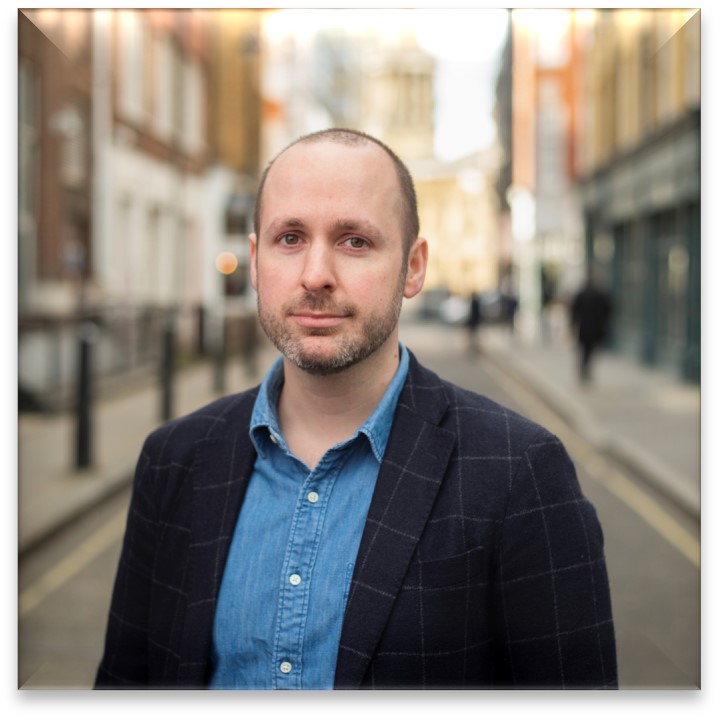The event topic was recently changed in response to the latest developments in generative AI.
This event is hybrid, please do join us.
If you would like to attend the talk here in Oxford, at a local venue, please register on Eventbrite. Seats are limited so registration is required.
For anyone joining remotely, your connection details are: https://www.youtube.com/watch?v=SaSP41BKUkg
Abstract: Generative AI has taken the world by storm over the last 9 months, from artistic tools that may upend the creative economy, to an AI-powered ‘copilot for the web’ that just might threaten to kill you if you don’t do what it says. Recent (often prescient) work helps to plot the potential harms of AI systems that generate text and images on demand, but can moral philosophy add a useful lens to help us understand which risks should concern us most, and which we can (for now) discount? For example, how should we weigh and respond to the risks of manipulative but narrow dialogue agents against hypothetical future systems with more general capabilities? And how will the prospect of governing algorithmic systems with natural language prompts affect long-standing debates in machine ethics? This talk makes first steps in developing a ‘generative (AI) ethics’, offering suggestions for how moral philosophy can help understand, prioritise, and reduce the risks posed by recent advances in AI.
The Institute for Ethics in AI will bring together world-leading philosophers and other experts in the humanities with the technical developers and users of AI in academia, business and government. The ethics and governance of AI is an exceptionally vibrant area of research at Oxford and the Institute is an opportunity to take a bold leap forward from this platform.
Every day brings more examples of the ethical challenges posed by AI; from face recognition to voter profiling, brain machine interfaces to weaponised drones, and the ongoing discourse about how AI will impact employment on a global scale. This is urgent and important work that we intend to promote internationally as well as embedding in our own research and teaching here at Oxford.

Professor Seth Lazar is Professor of Philosophy at the Australian National University, an Australian Research Council (ARC) Future Fellow, and a Distinguished Research Fellow of the University of Oxford Institute for Ethics in AI. He has worked on the ethics of war, self-defence, and risk, and now leads the Machine Intelligence and Normative Theory (MINT) Lab, where he directs research projects on the moral and political philosophy of AI, funded by the ARC, the Templeton World Charity Foundation, and Insurance Australia Group. He was General Co-Chair for the ACM Fairness, Accountability, and Transparency conference 2022, and Program Co-Chair for the ACM/AAAI AI, Ethics and Society conference in 2021, and is one of the authors of a study by the US National Academies of Science, Engineering and Medicine, which reported to Congress on the ethics and governance of responsible computing research. He has given the 2022 Mala and Solomon Kamm lecture in Ethics at Harvard University, and the 2023 Tanner Lecture on AI and Human Values at Stanford University.
Commentators

Dr Jeffrey Howard is associate professor of political theory at University College London. He works in contemporary political, moral, and legal philosophy, with a focus on ethics and public policy. His publications cover a range of topics including freedom of expression, social media, democracy, counter-terrorism, and criminal punishment. He is a UKRI Future Leader Fellow, a BBC/AHRC New Generation Thinker, and a recipient of a British Academy Rising Star Engagement Award. He currently directs the Online Speech Project at UCL, a cross-disciplinary examination of the ethics of online speech governance, funded by UKRI. He is a graduate of Oxford and Harvard.
Dr Charlotte Unruh is an Early Career Research Fellow at the Oxford Institute for Ethics in AI. Charlotte works on the ethics of harm and the future of work in the age of AI. Before joining the Institute in 2022, Charlotte was a postdoctoral research fellow at the Technical University of Munich. Charlotte received her PhD in Philosophy from the University of Southampton in 2021.
Hosted by

Professor John Tasioulas, the inaugural Director for the Institute for Ethics and AI, and Professor of Ethics and Legal Philosophy, Faculty of Philosophy, University of Oxford. He was previously the inaugural Chair of Politics, Philosophy & Law and Director of the Yeoh Tiong Lay Centre for Politics, Philosophy & Law at The Dickson Poon School of Law, Kings College London. Professor Tasioulas has degrees in Law and Philosophy from the University of Melbourne, and a D.Phil in Philosophy from the University of Oxford, where he studied as a Rhodes Scholar. He was previously a Lecturer in Jurisprudence at the University of Glasgow, Reader in Moral and Legal Philosophy at the University of Oxford, where he taught from 1998-2010, and Quain Professor of Jurisprudence at University College London. He has also acted as a consultant on human rights for the World Bank and is a member of the International Advisory Board of the European Parliament's Panel for the Future of Science and Technology (STOA). He has published widely in moral, legal, and political philosophy.
